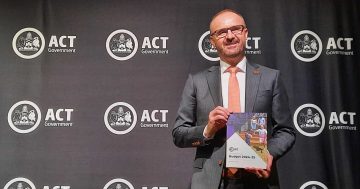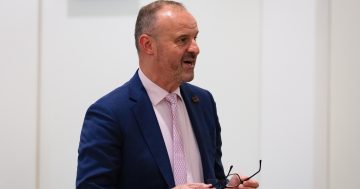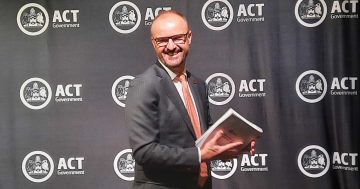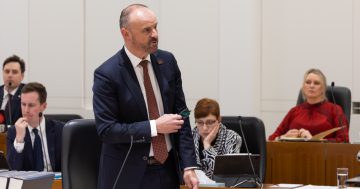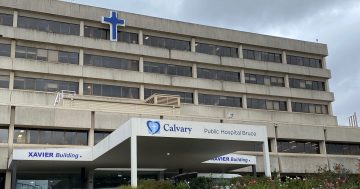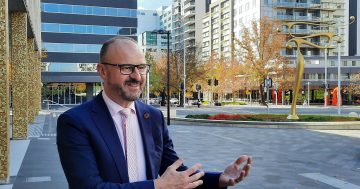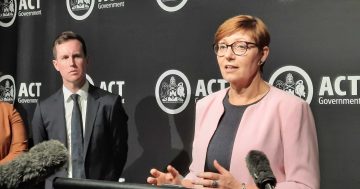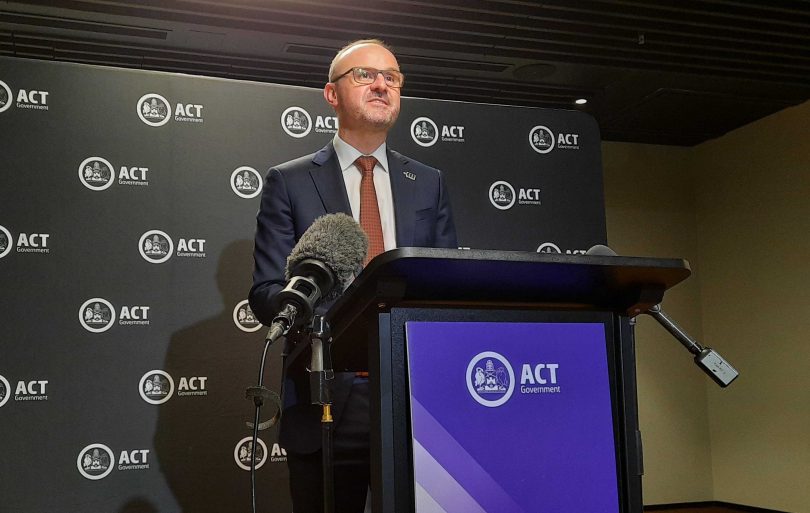
Chief Minister Andrew Barr on Budget day: various stakeholders will be disappointed. Photo: Ian Bushnell.
The 2021-22 ACT Budget’s record deficit and debt beg the question of whether the numbers hold any real meaning anymore.
The Territory is far from alone in pulling out the credit card to fund its response to the pandemic and the economic recovery to come, but Chief Minister Andrew Barr assures us that its unprecedented level of debt is manageable and there has never been a better time to borrow given the historically low interest rates.
Should he have gone even further to, say, build even more social housing or push on with the City Cultural Precinct? Hell, why not throw in a stadium as well?
Mr Barr acknowledged it was an opportunity to get things done, but while he is happy to be a Keynesian, there are limits; more practically, to do with having the capacity to actually deliver projects.
As it is, time management has not been one of the Labor Government’s strengths, say when it comes to the Canberra Hospital expansion, although Mr Barr would be the first to remind the critics that the first stage light rail was delivered mostly on time and on budget.
The point is that in a time of uncertainty and supply line and labour issues amid a nationwide infrastructure boom to restart the economy, it is probably wise for the government not to bite off more than it can chew.
The big three – light rail stage 2A, the hospital, and Woden CIT – and the host of other smaller projects that the budget funds is probably enough for the ACT to digest for now.
Mr Barr knows various stakeholders will be disappointed but was upfront when he said some things will just have to wait until the second half of the decade.
It is a shame that the Cultural Precinct and Canberra Theatre redevelopment has been set back a couple of years. There is some money for site investigation but don’t expect a start before 2024-25. A two-year build will take the much-needed project out to probably 2027.
If the government really wants Canberra to be the nation’s arts capital, then this particular project should have been kept on track.
That particular section of the city is desperate for a makeover, as is the dated theatre, and many in the arts sector are losing heart that they will ever see a new precinct.
The impressive Constitution Place development nearby has only highlighted the drabness of the Civic Square surrounds.
The growing Molonglo community can also feel miffed that the land release for the long-awaited Group Centre has been put back until 2023-24.
The business sector has complained that the government has not done enough to support it, particularly the many small businesses affected by or taken out by the COVID-19 restrictions.
It is also worried about workforce shortages and believes Mr Barr could have done more to attract or build the skills the ACT will need.
Throughout the pandemic, the government has been labelled anti-business despite the millions of dollars in support the ACT and the Commonwealth have provided.
In recent times, Mr Barr has had to bear the brunt of criticism that relief was reaching businesses too slowly or not all. Time and time again, he has had to explain that the Morrison Government decided to abandon the efficient JobKeeper scheme for the more complicated state and territory-administered programs.
Industry has to carry part of the blame for skills shortages, preferring to rely on migration to fill gaps rather than invest in training. It is a bit rich to turn around and point the finger at the ACT Government which has done what it can while conservative governments elsewhere have done their best to dismantle TAFE systems.
It is interesting that Mr Barr can hand down a Budget with a nearly billion-dollar deficit and still be told by business that he should have spent more when usually he would have been pilloried for being irresponsible.
Mr Barr is right to predict that when lockdown ends and the economy opens up, the money burning a hole in Canberran pockets will fuel a v-shaped recovery, as will the infrastructure pipeline.
People should also remember that the Budget’s primary goal this time is to deal with the pandemic and its ramifications.
This is a Budget that necessarily has a lot of fish to fry, and an economically conservative Mr Barr still needed to calibrate a way back towards a balanced book, not that that has particular virtue for its own sake.
Even in these expansive times, he can’t please everyone, but it is a Budget that will support business through tough times, protect the vulnerable and, as he says, turbocharge the economy, particularly with the Commonwealth on a similar trajectory.
The challenges remain: the double-edged sword of the housing boom, the balancing act of ‘sustainable’ development, the broken planning system and maintaining first-world services in a jurisdiction that expects the best but has limited revenue options.












